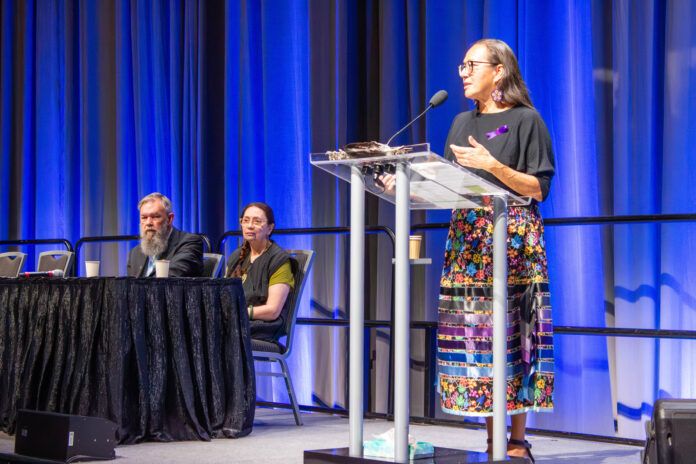The First Nations Health Authority is working with Indigenous communities around the world to tackle the opioid crisis.
Dr. Nel Wieman, acting chief medical officer for the health authority, recently met with representatives from Australia and Hawaii to discuss the drug crisis, and how it is affecting Indigenous communities. She spoke at the Healing Our Spirit Worldwide conference, held September 11-15 in Vancouver.
Wieman points out that although Indigenous people make up 3.3 per cent of the population in British Columbia, they represented 16.4 per cent of toxic drug poisoning deaths last year.
“Our numbers have gone up and up and up and there has been a terrible collision between the pandemic and the toxic drug crisis,” said Dr. Wieman.
However, she said, it’s important to focus on hope and healing in bringing those numbers down. Things like the three-year trial of decriminalizing possession of some illicit drugs, the creation of the First Nations Virtual Substance Use and Psychiatry Service, and deployment of harm reduction principles are aimed at saving lives.
Dr. Wieman said we need to treat people who use substances with dignity, show them compassion, and be mindful of underlying trauma.
“We need to change how we think about, talk about, and choose to treat people who use substances,” she said.
Speakers from Hawaii and Australia had similar stories. All agreed the crisis needs to be handled with compassion. They say eliminating stigma and reconnecting people with their culture are crucial to help people find recovery.
Dr. Scott Wilson, CEO of the Aboriginal Drug and Alcohol Council in South Australia, said more Australians die from overdose than are killed in automobile accidents — a death to drugs every four hours. Aboriginal and Torres Strait Islanders are four to five times more likely to die from overdose than non-Indigenous Australians.
He said a major problem for Indigenous people who use substances is their “invisibility” to non-Indigenous people and governments. As well, he said substances carry great stigma and shame for people who use them, mainly because of their illicit nature.






